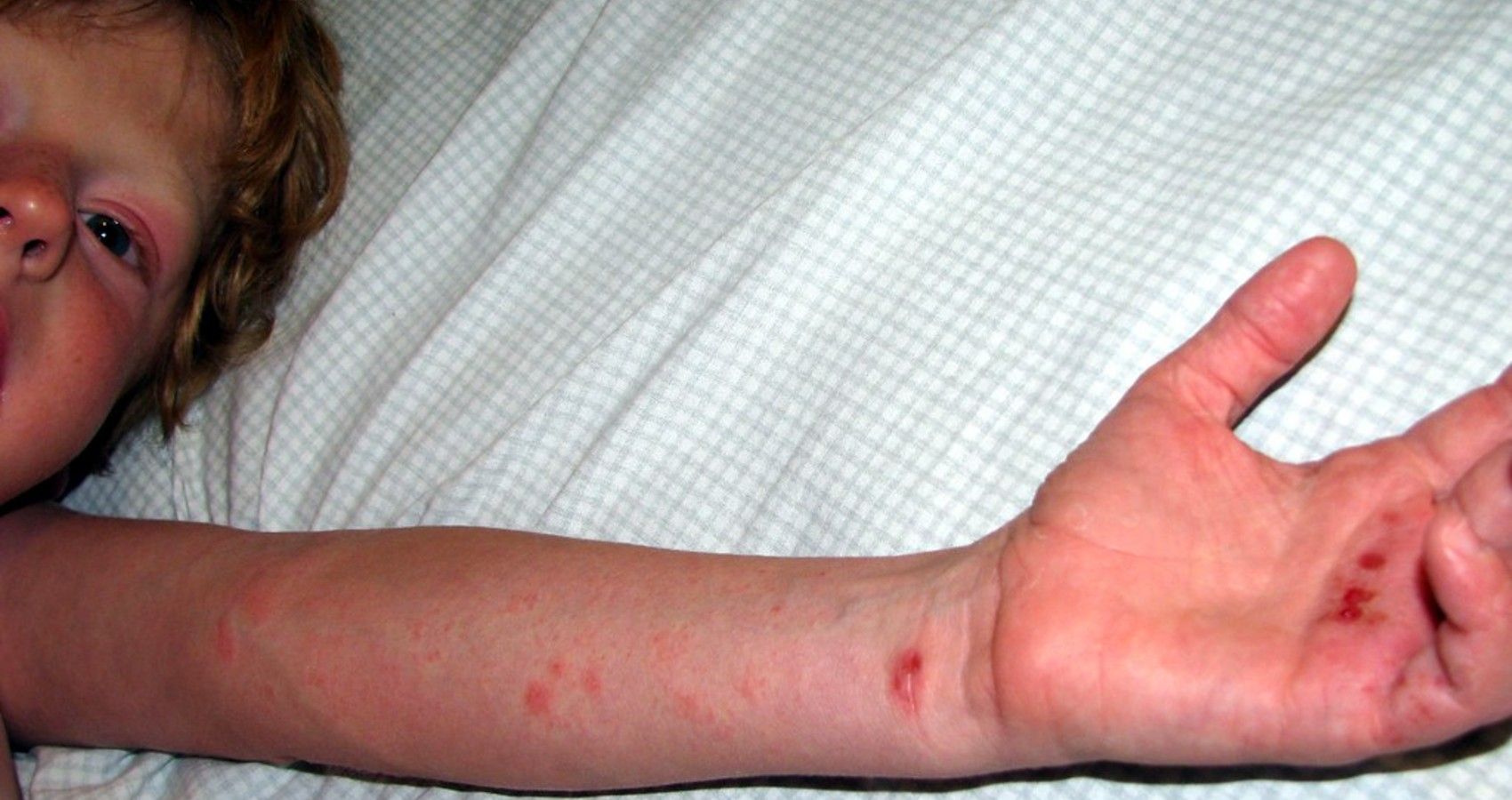Severe eczema in children has been linked to depression, a new study has found. Eczema is one of the most common skin ailments that children endure. While a lot of children grow out of it as they age, there are some that can continue to suffer with it into adulthood and beyond. Eczema can result in dry, red patches all over the skin, and it can be so severe that it can crack and bleed. It can be extremely uncomfortable to an infant, as they are incredibly itchy. Studies are constantly being done to look at risk factors and treatment for eczema, but also the side effects of the skin condition not many would have thought of.
According to Medical Xpress, severe eczema in children has been linked to depression and anxiety. This was found in a recent study that was published in the journal, JAMA Dermatology, and it can be read through in full here.
Atopic dermatitis is the medical name for the condition, and severe cases are what is linked to depression, anxiety, and even internalized behaviors when a child lives through the condition every day. Chloe Kern was one of the researchers from the University of California and they look at the correlation between eczema and depression.
They look at the participant groups multiple times during childhood. They were followed from birth until they were 10 years old. They had over 11,000 children in their studies, and they found that depression was seen in 6% to 21% of children who had eczema. When it came to internalized behaviors, this was seen in 10 to 16% of children. They found that this link was only present for severe cases of eczema, and did not appear at all for those who had mild or moderate cases.
When it comes to why this is, the biggest factor at play was the quality of sleep. When children had severe cases, their sleep was suffering because they were so uncomfortable. This lack of sleep meant that their mental health suffered, and made them a higher risk for developing depression and/or anxiety. The researchers of this study said that it points to medical providers to have a more holistic approach when caring for their patients with severe eczema and that they may need to be monitored more closely when it comes to helping them sleep and making sure they are not struggling with their mental health.
Sources: Medical Xpress, JAMA Network

